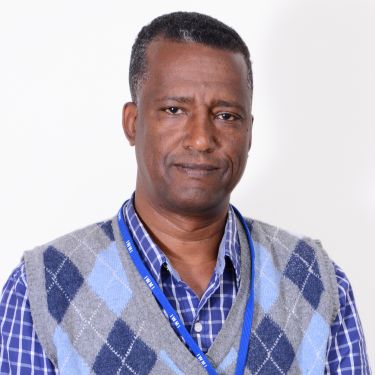Amare is trained in nutrient cycling and soil fertility management, and bioclimatology. He obtained PhD in 2005 from the University of Goettingen, Germany. He has more than 25 years of development and research experiences in various public and private organizations, including the Ethiopian Valleys Development Studies Authority; Ministry of Water, Irrigation and Energy of Ethiopia; Center for Environmental Systems Research, University of Kassel, Germany; Halcrow and Metaferia Consulting Engineers (UK-based consulting firm); International Livestock Research Institute (ILRI), Ethiopia, and India; and International Crops Research Institute for the Semi-Arid Tropics (ICRISAT), India. Amare has gained experience over the years in various fields, including soil fertility and plant nutrition, bioclimatology, agricultural water management, agricultural systems, irrigation agronomy, natural resource management. He has been contributing to the design and implementation of programs and projects; managing the IWMI East Africa office to ensure delivery of high-quality outputs that meet the requirements of donors and stakeholders; and establishing and managing partnerships and working in multidisciplinary and multicultural teams.

Amare Haileslassie
Principal Researcher
Research team:
Areas of expertise:
Contact:
For media enquiries, please contact IWMI's communications team.
Languages:
English, German, Amharic, Oromiffa
Profiles:
Office:
Addis Ababa – Ethiopia

